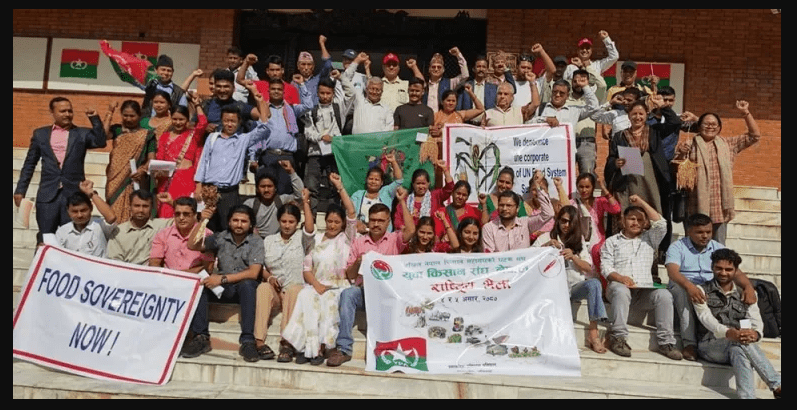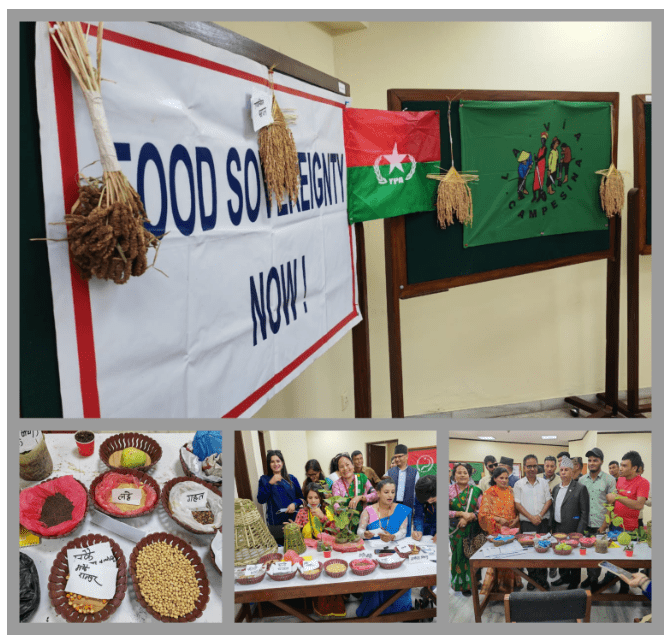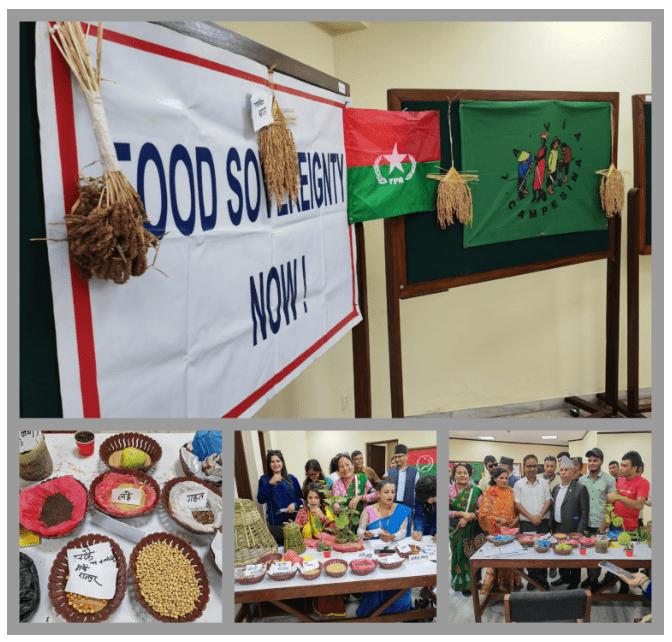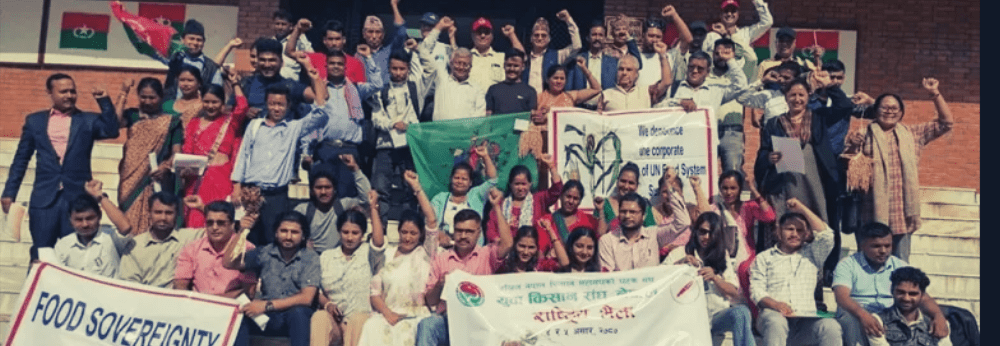The Youth Peasants’ Association of Nepal, a sister organization of ANPFa and a member of La Via Campesina, recently established a new central committee comprising 51 members. The inaugural meeting, held on June 20, was inaugurated by Dr. Beduram Bhusal, the Minister of Agriculture and Livestock Development. Dr. Bhusal emphasized the importance of involving young people in the Research-Education-Extension chain to bring about reforms in Nepal’s agricultural system.
He also mentioned that the formulation of Acts to implement the ‘Right to Food Sovereignty’ is currently underway. The Minister further highlighted the government’s prioritization of youth in the agricultural sector in the recent budget of fiscal year 2080/81, expressing the government’s willingness to collaborate with the Youth Peasants.
During a two-day national assembly, several sectoral training sessions were conducted, covering topics such as the Socialist Reform of Agriculture, Value Chains, Aquaculture, Livestock Development, and Public Policies for young farmers.
The training began with a presentation on the value chain by Dr. Keshav Khadka, the vice chairperson of ANPFa. Dr. Prakash Poudel, a Pest Risk Analyst from the Plant Quarantine and Pesticide Management Centre (PQPMC), facilitated a session on improving quarantine efficiency for safe and healthy food. Subhas Kumar Jha, a Fisheries Development Officer, presented solution-oriented approaches to address challenges in the fisheries sector and engage youth in aquaculture. The first day’s sessions concluded with a presentation by Dr. Avash Poudel, a Livestock Development Officer from the Ministry of Agriculture and Livestock Development, focusing on the prospects of youth peasants in livestock and dairy farming.
At the end of the first day’s inaugural session, Mr. Balram Banskota, the Chairperson of ANPFa, emphasized the significance of income generation for transforming agriculture. Banskota also urged the Minister to expedite the formulation of regulations to implement the ‘Right to Food Sovereignty’.
The second day commenced with a motivational session by Dr. Bijay Poudel, Deputy General Secretary of CPN (US) and a Political Economist, who depicted the current scenario of the global labor market, youth migration, and agriculture. Dr. Rajendra Man Shrestha, the Agriculture and Livestock Development Minister of Bagmati Province, concluded the formal sessions, highlighting the youth’s potential to contribute innovative ideas, practical solutions, and valuable feedback to shape Nepal’s agri-economic policies and development strategies.
Pramesh Pokharel, General Secretary of ANPFa and the International Coordination Committee member of La Via Campesina, delivered a session on the ‘Socialist Model of Agricultural Reform’, providing a comprehensive analysis of the global political scenario and linking it to the detrimental impact of commodification of agricultural goods and the free trade system on the lives of rural peasants and subsistence farmers. He advocated for food sovereignty as a guiding principle and agroecology as a practice to move towards a self-reliant and sustainable food system.
During the assembly, a 51-member central committee, proportionally representing all seven provinces, was declared. The newly elected president, Utkal Sapkota, acknowledged the gap between the technical sector and the political leadership of Nepal, pledging to work towards bridging it. He also urged Nepal to expedite the process of formulating and enacting laws that effectively implement the UNDROP, as Nepal is a signatory to the declaration.




